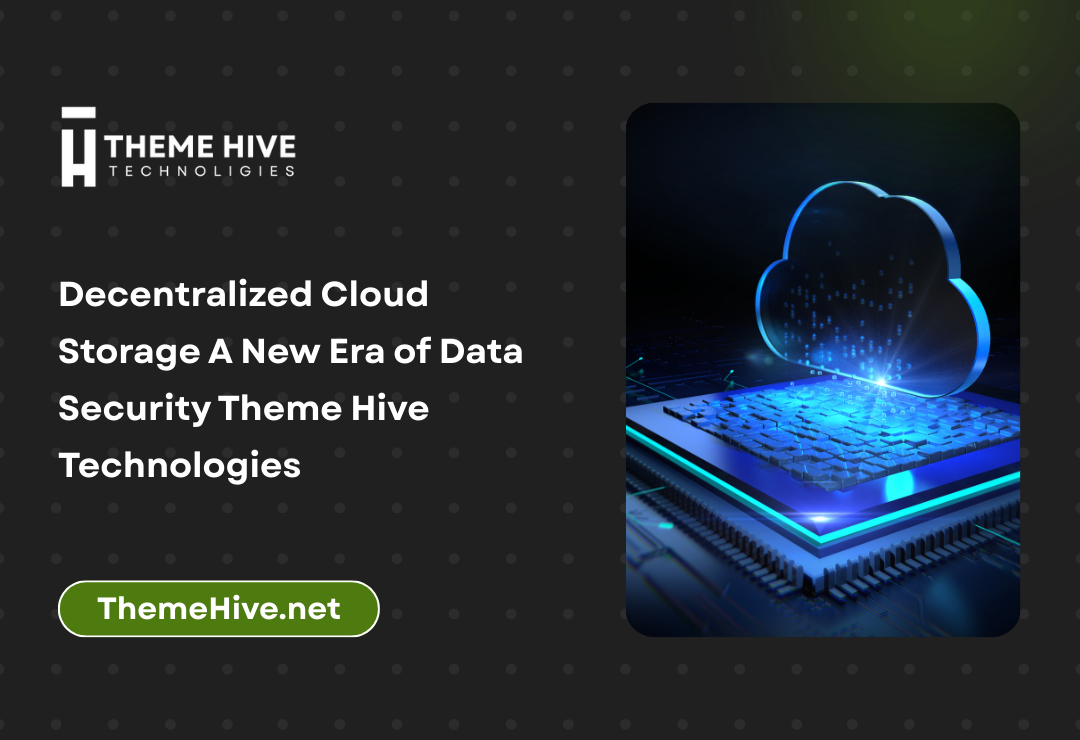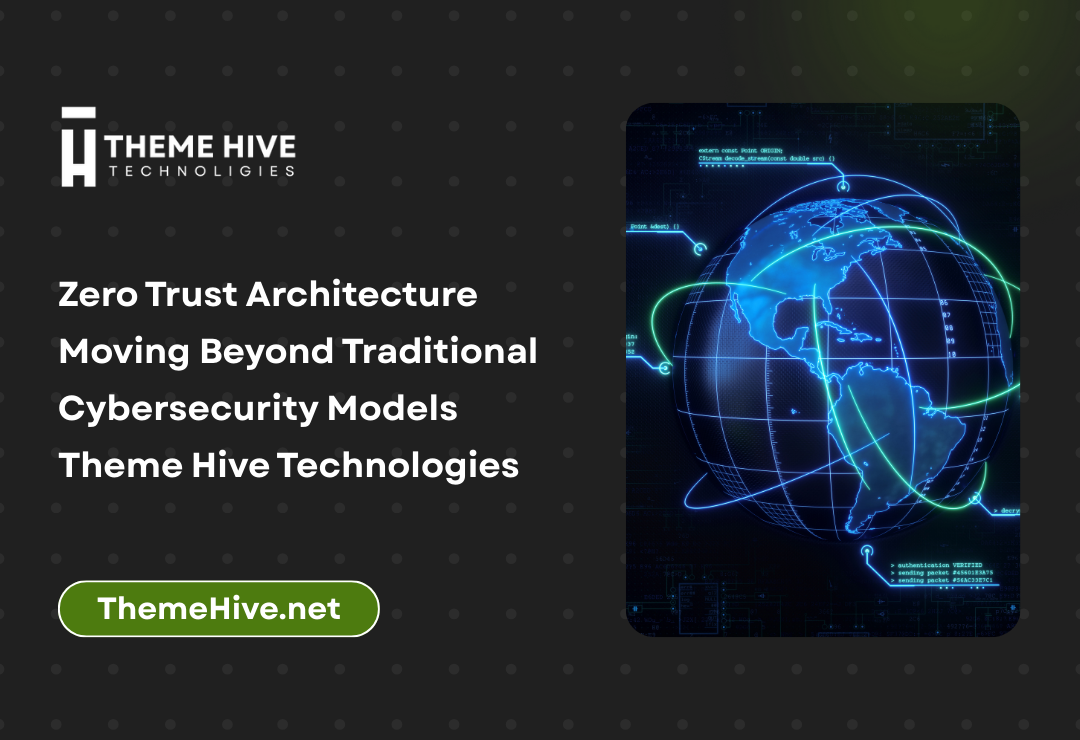The gig economy has fundamentally transformed how people work, creating a massive ecosystem where freelancers, contractors, and independent professionals collaborate on projects across global markets. At the heart of this revolution lies technology, and IT agencies have emerged as crucial facilitators, enablers, and architects of the digital infrastructure that makes modern gig work possible. As businesses increasingly rely on flexible talent solutions and remote collaboration, understanding the pivotal role of IT agencies in supporting and shaping the gig economy becomes essential for both organizations and individual professionals.
Theme Hive Technologies recognizes that IT agencies are not just service providers in the gig economy – they are strategic partners that help businesses navigate the complex technological requirements of managing distributed teams, ensuring data security, and maintaining operational efficiency in an increasingly decentralized work environment.
Understanding the Gig Economy Landscape
The gig economy represents a fundamental shift from traditional employment models to project-based, flexible work arrangements. This transformation encompasses everything from ride-sharing drivers and food delivery services to highly skilled software developers, marketing consultants, and creative professionals working on temporary assignments for multiple clients simultaneously.
According to recent research by McKinsey Global Institute, up to 162 million people in Europe and the United States work as independent contractors, representing 20-30% of the working-age population. This massive workforce requires sophisticated technological infrastructure to function effectively, creating unprecedented opportunities and challenges for IT agencies.
The complexity of managing gig workers extends beyond simple project assignment. Organizations must coordinate multiple independent contractors, ensure seamless communication across time zones, maintain data security with external access, and integrate diverse skill sets into cohesive project outcomes. These challenges require specialized IT solutions that traditional corporate IT departments may not be equipped to handle.
TheneHive Technologies has observed that businesses successful in leveraging gig economy talent invest heavily in robust IT infrastructure and partner with agencies that understand the unique requirements of distributed workforce management.
Core IT Services Enabling the Gig Economy
Cloud Infrastructure and Scalability Solutions
Cloud computing forms the backbone of the gig economy, enabling workers to access tools, data, and collaborative platforms from anywhere in the world. IT agencies play a crucial role in designing and implementing cloud architectures that can scale rapidly based on project demands and workforce fluctuations.
Modern gig work requires infrastructure that can accommodate sudden increases in team size, integrate new tools quickly, and maintain performance across varying internet connections and device capabilities. IT agencies specializing in gig economy support must understand these unique scalability requirements and design systems accordingly.
The challenge extends beyond basic cloud hosting to encompass sophisticated orchestration of services, automated scaling protocols, and cost optimization strategies that align with the project-based nature of gig work. These technical requirements demand expertise that most individual businesses cannot develop internally.
Collaboration and Communication Platforms
Effective collaboration represents perhaps the most critical technological challenge in gig economy management. IT agencies must implement and customize communication platforms that facilitate seamless interaction between full-time employees, contractors, and clients across multiple time zones and working styles.
This involves more than deploying standard communication tools – it requires creating integrated ecosystems that combine project management, real-time messaging, video conferencing, file sharing, and progress tracking into cohesive workflows. The platforms must be intuitive enough for quick onboarding of new gig workers while sophisticated enough to handle complex project requirements.
Theme Hive Technologies specializes in creating custom collaboration solutions that adapt to specific industry requirements and organizational workflows, ensuring that gig workers can integrate seamlessly into existing business processes.
Security and Access Management
Managing security for a distributed workforce presents unique challenges that require specialized IT agency expertise. Traditional perimeter-based security models become inadequate when workers access company resources from personal devices, home networks, and public internet connections across global locations.
IT agencies must implement zero-trust security frameworks, multi-factor authentication systems, and sophisticated access controls that maintain security without hindering productivity. This includes developing protocols for secure onboarding and off-boarding of temporary workers, managing access to sensitive data, and maintaining compliance with industry regulations.
The dynamic nature of gig work relationships requires security systems that can quickly grant and revoke access permissions, monitor unusual activity patterns, and provide audit trails for regulatory compliance. These capabilities require ongoing management and optimization that IT agencies are uniquely positioned to provide.
Technology Platforms Transforming Gig Work
Freelance Marketplace Integration
Major platforms like Upwork, Fiverr, and Freelancer have created vast marketplaces connecting businesses with gig workers globally. IT agencies play crucial roles in helping organizations effectively leverage these platforms through custom integrations, automated workflows, and enhanced project management capabilities.
According to Upwork’s Future of Work research, businesses that integrate marketplace platforms with their existing IT systems see 40% improvements in project completion rates and 25% reductions in administrative overhead. These integrations require sophisticated API development and system architecture expertise.
Beyond basic platform connectivity, IT agencies help businesses develop competitive advantages through enhanced profiles, automated bidding systems, intelligent matching algorithms, and comprehensive performance analytics that optimize their success on these platforms.
Custom Application Development
Many organizations require specialized applications to manage their unique gig economy needs effectively. IT agencies develop custom solutions for contractor onboarding, project assignment, performance tracking, payment processing, and quality assurance that generic platforms cannot provide.
These custom applications often integrate multiple data sources, automate complex workflows, and provide analytics that help organizations optimize their use of gig workers. The development process requires understanding both technical requirements and the nuanced needs of flexible workforce management.
Payment and Financial Management Systems
Managing payments for multiple contractors across different projects, time zones, and currencies presents significant technical challenges. IT agencies implement sophisticated financial management systems that automate invoicing, track project expenses, manage currency conversions, and ensure compliance with tax regulations.
These systems must integrate with existing accounting software, provide detailed reporting capabilities, and maintain audit trails for financial compliance. The complexity increases when dealing with international contractors who may have different payment preferences and regulatory requirements.
Supporting Business Transformation Through Gig Economy IT
Organizational Change Management
IT agencies increasingly serve as change management partners, helping organizations transition from traditional employment models to hybrid workforces that combine full-time employees with gig workers. This transformation requires more than technological implementation – it demands cultural and process changes supported by appropriate IT infrastructure.
Successful transformations involve redesigning business processes to accommodate flexible work arrangements, implementing new performance measurement systems, and creating digital-first cultures that work effectively for both remote and in-office team members.
Deloitte’s research indicates that organizations with comprehensive digital transformation strategies, including gig economy integration, achieve 23% higher revenue growth than competitors relying solely on traditional employment models.
Skills Gap Solutions
The rapid pace of technological change creates ongoing skills gaps that traditional hiring cannot address quickly enough. IT agencies help organizations identify these gaps and develop strategies for accessing specialized expertise through gig work arrangements.
This involves creating detailed skills inventories, developing rapid assessment protocols, and implementing training systems that help gig workers quickly understand organizational requirements and standards. IT agencies often maintain networks of pre-vetted specialists who can be deployed quickly for specific project needs.
Performance Analytics and Optimization
Data-driven optimization represents a key advantage that IT agencies bring to gig economy management. Through sophisticated analytics platforms, organizations can track contractor performance, project outcomes, cost effectiveness, and quality metrics across multiple dimensions.
These analytics systems help organizations identify the most effective contractors for specific project types, optimize project scoping and pricing, and continuously improve their gig work processes. The insights generated often reveal opportunities for process improvements that benefit both the organization and its gig workers.
Industry-Specific Applications
Software Development and Technology Services
The technology sector leads gig economy adoption, with software development projects particularly well-suited to distributed team models. IT agencies specializing in this space must understand software development lifecycles, code quality management, intellectual property protection, and integration of contractor work into existing codebases.
Specialized platforms for code collaboration, automated testing, continuous integration, and deployment management become essential infrastructure components. IT agencies must also address challenges around knowledge transfer, documentation standards, and long-term maintenance of code developed by temporary contractors.
Creative and Digital Marketing Industries
Creative industries have embraced gig work models extensively, requiring IT infrastructure that supports large file transfers, collaborative design processes, brand asset management, and client approval workflows. IT agencies serving these industries must understand the unique requirements of creative software, version control for visual assets, and intellectual property management.
The global nature of creative work requires platforms that can handle different file formats, support various creative software tools, and maintain quality standards across diverse team members. These technical requirements often exceed the capabilities of standard business IT solutions.
Healthcare and Regulated Industries
Highly regulated industries like healthcare face additional complexities when engaging gig workers. IT agencies must implement solutions that maintain HIPAA compliance, manage credentialing requirements, and ensure that temporary workers can access necessary systems without compromising patient privacy or regulatory compliance.
These solutions require sophisticated access controls, comprehensive audit capabilities, and integration with existing healthcare IT systems while maintaining the flexibility that makes gig work attractive. The technical and regulatory complexity requires specialized IT agency expertise.
Challenges and Solutions in Gig Economy IT
Integration with Legacy Systems
Many established organizations operate legacy IT systems that were not designed for flexible workforce models. IT agencies must develop integration strategies that connect modern gig work platforms with existing enterprise systems without compromising security or functionality.
This often involves developing custom middleware, implementing API gateways, and creating data synchronization protocols that maintain consistency across multiple systems. The challenge increases when dealing with sensitive data or regulated industries where system changes require extensive testing and approval processes.
Quality Control and Standards Management
Maintaining consistent quality standards across a distributed workforce requires sophisticated IT solutions for project management, quality assurance, and performance monitoring. IT agencies implement systems that can track work quality, identify potential issues early, and ensure that deliverables meet organizational standards.
These systems often include automated quality checking tools, collaborative review processes, and performance tracking mechanisms that help organizations maintain standards while benefiting from the flexibility of gig work arrangements.
Legal and Compliance Considerations
The gig economy operates in a complex legal environment where worker classification, intellectual property rights, and regulatory compliance create ongoing challenges. IT agencies must implement solutions that help organizations navigate these complexities while maintaining operational efficiency.
This includes developing systems for proper worker classification documentation, intellectual property assignment tracking, and compliance reporting that meets regulatory requirements. Gartner research suggests that organizations with comprehensive compliance management systems reduce legal risks by up to 60% compared to those with ad-hoc approaches.
Future Trends and Emerging Technologies
Artificial Intelligence and Automation
AI technologies are transforming gig work through intelligent matching systems, automated quality assessment, predictive project scoping, and enhanced communication tools. IT agencies are at the forefront of implementing these technologies to create more efficient and effective gig work experiences.
Machine learning algorithms can analyze project requirements and automatically identify the most suitable contractors based on skills, availability, past performance, and cost considerations. These systems continuously improve their recommendations based on outcome data, creating increasingly sophisticated matching capabilities.
Blockchain and Smart Contracts
Blockchain technology offers potential solutions for common gig economy challenges including payment automation, intellectual property protection, and reputation management. IT agencies are exploring smart contract implementations that can automate payment processing, enforce project milestones, and create tamper-proof records of work completion.
These technologies could significantly reduce administrative overhead while increasing trust and transparency in gig work relationships. However, implementation requires sophisticated technical expertise and careful consideration of regulatory implications.
Virtual and Augmented Reality
As VR and AR technologies mature, they create new possibilities for remote collaboration that could transform gig work effectiveness. IT agencies are beginning to implement virtual workspace solutions that enable more immersive collaboration experiences for distributed teams.
These technologies are particularly promising for creative work, training applications, and complex problem-solving scenarios where traditional video conferencing limitations become apparent. Early adopters are seeing improvements in team cohesion and project outcomes through enhanced virtual collaboration capabilities.
Best Practices for IT Agencies in the Gig Economy
User Experience Design
Successful gig economy IT solutions prioritize user experience for both businesses and contractors. This means creating intuitive interfaces, streamlined onboarding processes, and efficient workflows that minimize administrative burden while maximizing productivity.
IT agencies must understand the diverse user base they serve, including varying technical skill levels, device preferences, and working styles. Solutions must be accessible and effective for users ranging from highly technical specialists to creative professionals with limited IT backgrounds.
Scalability and Flexibility Planning
Gig work demands fluctuate significantly based on business cycles, project requirements, and market conditions. IT agencies must design systems that can scale efficiently without compromising performance or security. This requires sophisticated architecture planning and ongoing optimization.
Effective solutions anticipate growth patterns, plan for peak demand scenarios, and provide cost-effective scaling mechanisms that align with the variable nature of gig work expenses. The ability to rapidly scale up or down represents a competitive advantage for organizations using these systems.
Security-First Approach
With increasing cyber security threats and regulatory requirements, IT agencies must implement security measures from the ground up rather than as afterthoughts. This includes comprehensive risk assessment, multi-layered protection strategies, and ongoing monitoring systems.
The distributed nature of gig work creates unique attack vectors that require specialized security expertise. IT agencies must stay current with emerging threats and continuously update protection mechanisms to maintain security effectiveness.
Measuring Success and ROI
Key Performance Indicators
Successful gig economy IT implementations require comprehensive measurement systems that track both technological performance and business outcomes. Key metrics include system uptime, user adoption rates, project completion times, cost per project, and quality scores.
Theme Hive Technologies regularly publishes case studies demonstrating how proper measurement and optimization can deliver significant ROI improvements for organizations embracing gig work models.
Advanced analytics platforms can identify trends, predict potential issues, and recommend optimizations that continuously improve system effectiveness. These insights help organizations maximize their investment in gig economy IT infrastructure.
Return on Investment Analysis
Quantifying the ROI of gig economy IT investments requires sophisticated analysis that considers both direct cost savings and indirect benefits like increased agility, access to specialized skills, and reduced overhead expenses. IT agencies must provide clear metrics that demonstrate value creation.
Successful ROI analysis includes factors like reduced hiring costs, decreased infrastructure requirements, improved project delivery times, and enhanced scalability capabilities. These comprehensive measurements help organizations justify continued investment in gig economy IT solutions.
ThemeHive Technologies
Conclusion
IT agencies play an indispensable role in the continuing evolution of the gig economy, serving as the technological backbone that makes flexible work arrangements possible at scale. Their expertise in cloud infrastructure, security management, collaboration platforms, and custom application development creates the foundation upon which modern gig work thrives.
As the gig economy continues expanding and evolving, the relationship between IT agencies and flexible work arrangements will become even more crucial. Organizations that partner with experienced IT agencies position themselves to fully capitalize on the benefits of gig work while minimizing associated risks and challenges.
The future belongs to businesses that can effectively blend traditional employment with gig work arrangements, creating hybrid models that maximize both flexibility and effectiveness. This transformation requires sophisticated IT infrastructure and ongoing technological innovation that only specialized agencies can provide.
Ready to optimize your organization’s approach to gig economy challenges through strategic IT solutions? Contact Theme Hive Technologies to discover how our comprehensive IT services can help you build the technological foundation needed for successful gig work integration and long-term competitive advantage in the evolving world of work.
Internal Links
- Theme Hive Technologies Homepage
- About Our IT Solutions
- Comprehensive IT Services
- Industry News & Insights
- Connect with Our Team







